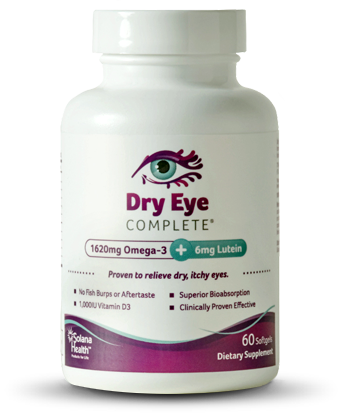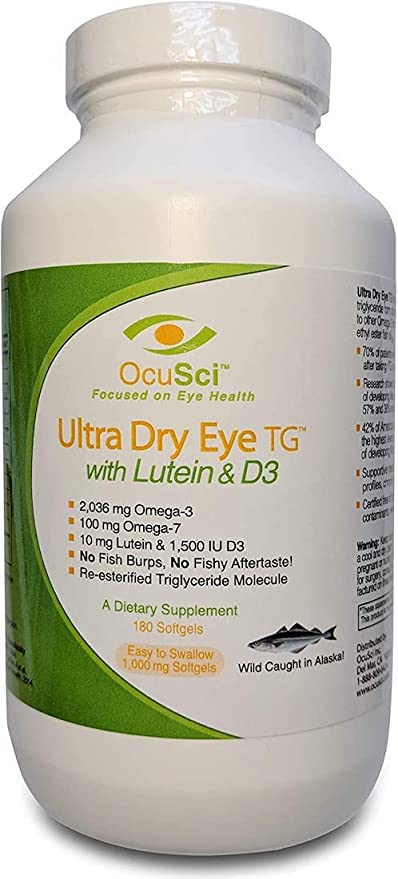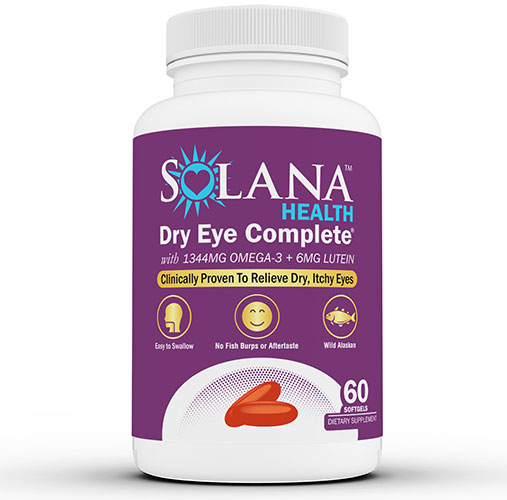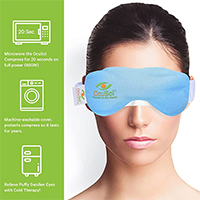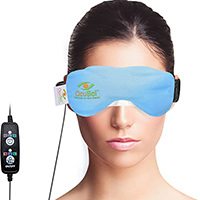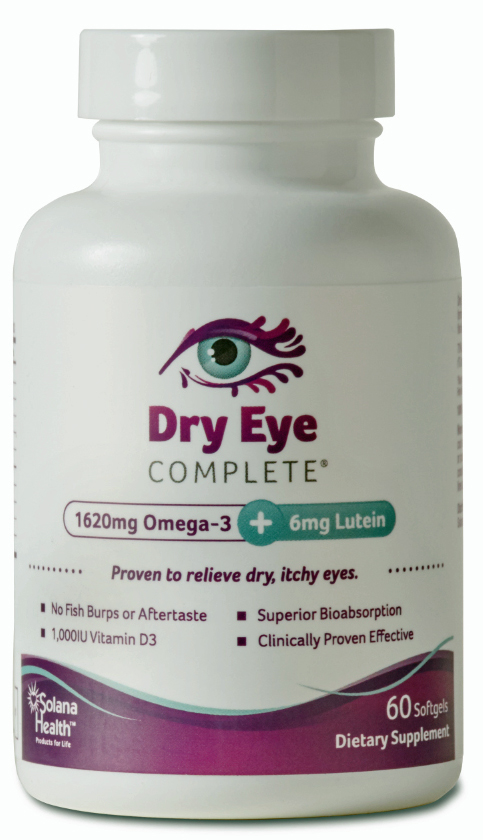There are many possible causes of burning eyes. Oftentimes, it is harmless and easy to resolve, but there are situations in which it can be indicative of something more serious going on. Some people also only have burning eyes, whereas others experience a range of symptoms, including discharge, water eyes, eye pain, and itching. In the vast majority of cases, environmental factors have caused burning eyes. These include high pollen counts or strong winds. However, you should never assume that your burning eyes are caused by environmental factors. Instead, always have things checked out by a physician first. Once you know the cause of your burning eyes, you will also be able to find the most appropriate treatment.
About Burning Eyes
In almost all cases, burning eyes are symptomatic of a different problem. Most commonly, these are allergies, pink eye, dry eye, vision stress, tiredness, or all of the above. If the burning persists for a while, you should seek medical attention. While it is unlikely to be an emergency, you must find the right treatment to alleviate the symptoms. That being said, over the counter medications like eye drops and eye lubricants, and resting your eyes, are almost always enough to resolve the issue. Placing a moist, cool compress can also provide almost instant relief.
Causes of Burning Eyes
The following is a list of the possible causes of burning eyes:
- Dry Eye Syndrome
- Computer Vision Syndrome
- Vision stress, including working behind a computer for too long
- Tiredness
- Dryness
- Allergies
- Chemicals like swimming pool chlorine, shampoo, and sunscreen
- Common irritants like cleaning products, soap, skin moisturizers, and makeup
- Prolonged use of contact lenses
- Environmental irritants, including pet dander, pollen, mold, dust, smoke, and smog
- Climates that are very dry, hot, cold, or windy
- Having a foreign object in the eye
- Inflammation
- Infection
- Flu or the common cold
In almost all cases, the causes of burning eyes are harmless. However, it can also be indicative of a condition such as blepharitis, dry eye syndrome (DES), and ocular rosacea, which may need more intensive treatment. In very rare cases, burning eyes can be caused by orbital cellulitis or uveitis, which are life- and sight-threatening conditions. Immediate medical attention must be sought if you suspect you are suffering from this.
It is important that you seek medical attention if your burning eyes persist. Because burning eyes are usually a symptom of something else, doctors will ask about whether you have any other symptoms, which will enable them to make a diagnosis. If, for instance, you also experience itching, an allergy is likely to be at the heart of the problem. If you also have discharge, then it is more likely that you are suffering from an infection.
How to Relieve Burning Eyes
If the burning of your eyes is caused by your eyes coming into contact with a household product, you should immediately check the instructions on the product’s container on what to do. Almost all the time, you will be able to simply rinse your eyes out with lukewarm water, and this will alleviate the problem. In some cases, however, you will need to seek medical attention.
It is very common, during the summer months, for children and adults alike to get sunscreen in their eyes. This can cause very significant burning and stinging when it first happens. However, if you gently rinse out your eyes, the relief is almost instant. If, on the other hand, the spillage was caused by a product such as bleach, you will need to seek immediate medical attention.
If your burning is caused by allergies, you should visit your physician. They will be able to prescribe anti-allergy medication, and they can advise you on which eye drops, gels, or lubricants you can use to help minimize the burning sensation you get when you experience an allergy attack. Drops are very different from oral medication, and much more useful. This is because many oral allergy medications actually dry the eyes out, causing further burning.
See also 10 Best Preservative-Free Artificial Tear Eye Drops
If you do believe that the burning in your eye is caused by you taking any form of medication, you need to speak to your physician. Do not stop using the medication before you have done so, unless the instructions specifically say you should. When doctors prescribe medication, they are aware of possible side effects and they will determine whether treating your symptoms is more important than avoiding side effects or not.
Burning Eyes and Dry Eye
If your burning eyes are caused by an underlying condition such as dry eye syndrome (DES), artificial tears may be most beneficial to you or a great Omega-3 fish oil. After all, burning eyes is an inflammatory response and can be quelled with an anti-inflammatory supplement such as fish oil. On the other hand, there are over the counter drops that you can purchase from most drug stores. You will quickly see that there are many different brands and types to choose from. More than likely, you will have to try quite a few products before you find the one that works best for you. A few important guidelines:
- If you feel you have to use drops more than four times per day, choosing drops that do not contain preservatives, as these can make the burning sensation worse.
- Do not use drops while wearing contact lenses.
- Use ointments just before you go to bed, as these can make your vision go blurry.
Regardless of the cause of your burning eyes, applying a cold compress will almost always help to soothe the sensation to a certain degree, even if it is just for a short period of time. Make sure the compress is clean at all times. If possible, wet it with sterilized water. Make sure you leave your eyes closed while you are applying the compress.
See our list of Common Dry Eye Symptoms
Featured Omega-3 Product Supplement
Dry Eye Complete
- Clinically Proven to Relieve Dry Eyes
- 1620mg Omega-3, 6mg Lutein, 1,000IU Vitamin D3
- Sourced from highly sustainable fisheries: wild caught Nordic sardines and anchovies
- 100% All Natural, Non GMO, Gluten Free, Dairy Free. Tested & Certified Free of Contaminants
- NO fish burps or aftertaste guaranteed
- Optometrist Recommended!
- Consumption of Omega 3 is recommended by American Eye Institute.
- Great for MILD & SEVERE dry eye
Do You Need a Doctor?
If you notice extreme photosensitivity (which means the light hurts your eyes), if your eyes hurt a lot, if you have any discharge, if you see flashes of light or floaters, if your vision is blurred or double, or if you experience any other symptoms that you cannot explain, you must immediately seek medical attention. Our eyes are incredibly delicate and there are quite a number of problems that can cause partial or full loss of vision, which must always be avoided.
See more Find an Eye Doctor Near You
If you do not experience any of the more serious symptoms, but your eyes still burn after three days, you should also seek medical attention. A physical examination will conducted at the clinic, and they will ask about your medical history. You will probably have to answer a number of questions, which will enable the physician to determine what is at the root of your problem. To make sure you can provide your doctor with all the necessary information, you may already want to have the answers to the questions ready. You will most likely be asked:
- A description of the drainage of the eye
- When the problem first started
- Whether it affects just one or both eyes
- Whether your vision is affected in any way
- Whether you are experiencing photosensitivity
- Whether anyone in your household is experiencing the same problems
- Whether you have a cold, or flu-like symptoms
- What treatments you have already tried
- Whether you have pets or carpets at home
- Whether you have recently changed your detergent
During your physical examination, the doctor will look at your conjunctiva, cornea, eye motion, eye lids, vision, and your pupils’ reaction to the light.
Generally, your physician will be able to prescribe medication without any further tests. Common medications include:
- Antihistamine eye drops if your burning eyes are caused by allergies
- Lubricating eye drops if you have dry eyes
- Antibiotic eye drops if you suffer from a bacterial infection
- Antiviral ointments or drops if you suffer from a viral infection
Possible Conditions Causing Burning Eyes
The table below highlights some of the conditions you may be suffering from, of which burning eyes is symptomatic. You should not attempt to diagnose yourself, however, but always seek the advice of a physician. Some conditions are classed as medical emergency, and medical attention must be sought immediately.
| Condition | Details |
| Keratitis | Corneal inflammation. The cornea is the tissue at the front of your eye, which covers your iris and pupil in its dome shape. |
| Corneal abrasion |
|
| Sjogrem’s Syndrome |
|
| Conjunctivitis |
|
| Hay fever |
|
| Allergic |
|
| Blepharitis |
|
| Dry Eye Syndrome |
|
| Corneal ulcer |
|
| Rheumatoid arthritis |
|
| Systemic sclerosis |
|
| Sarcoidosis |
|
| Foreign object |
|
References:
- Diseases and Conditions: Dry Eyes Information on the condition known as dry eyes. (Mayo Clinic)
- Eye Burning – Itching and Discharge – Information on causes and treatment for eye burning sensation with itching and discharge. (Medline Plus)
- Physical Examination – Information on what a health care provider does during a physical examination. (Medline Plus)

